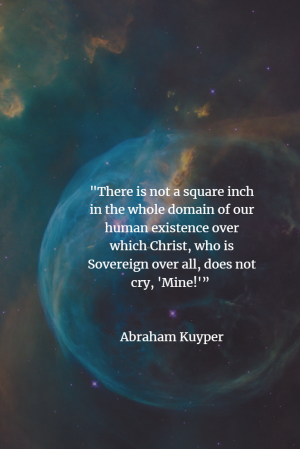Arguing Over Calvinism

 It seems the church has never been without some sort of divisive issue.
It seems the church has never been without some sort of divisive issue.
- The worship wars over allowing drums, guitars, and praise songs in the sanctuary.
- The original 16th-century worship wars: should we allow instruments of any kind?
- In the 70s, churches haggled over whether women could wear pantsuits to church.
It’s sadly humorous the things we’ve let divide us.
- What color should the carpet be?
- Does the piano go on the right side or the left side? (This was only an issue if they got past the 16th-centurty worship wars.)
- Card playing … dancing … going to the moving picture shows …
Those issues have sadly divided many churches, and most of them had nothing to do with theology. We might phrase our argument for or against the issue in spiritual terms and throw a verse or two in the mix, but these types of issues had nothing to do with the core tenets of our faith.
By and large, the recent worship wars have died off, but they’ve been replaced by a debate over Calvinism and reformed theology. Calvinism is nothing new. It can be summed up with these five points:

- Total Depravity. We are completely sinful.
- Unconditional Election. God chooses those who are saved without any thought to their merit or worthiness.
- Limited Atonement. Jesus died only for the elect. His death was sufficient for everyone, but it does not apply to everyone.
- Irresistible Grace. Those whom God calls cannot resist Him. God issues an external call to all people, but He issues an internal call to the elect , and they find His grace and call irresistible.
- Perseverance of the Saints. Those whom God calls cannot lose their salvation.
Whether you consider yourself a Calvinist or not—whether you call yourself reformed or not—you likely believe one or more of these tenets to some degree. Why? Because the heart of Calvinism is the sovereignty of God. And the divisiveness that has entered the church has to do with how much sovereignty God has at the expense of our free will.
 Let me say that again. We don’t disagree that God is sovereign. Where we differ is how much we believe God’s sovereignty controls everything.
Let me say that again. We don’t disagree that God is sovereign. Where we differ is how much we believe God’s sovereignty controls everything.
There is no question God is sovereign over the universe He created. There is nothing He cannot do if He so chooses. But where does He limit His sovereign control and allow us to choose freely? Or does He limit His sovereign control?
Yes, this is a theological matter and it is worth discussing, but coming to separate conclusions does not mean going our separate ways. I’m grieved to see individuals and churches splitting over these matters. In my own ministry and interaction with church leaders, I have mutual friends on both sides and both ends of the spectrum. We get along just fine.
The love we share in Christ makes all the difference. And there’s nothing divisive about the love of Christ.
Subscribe to this blog at the top of the page! And encourage others by sharing this post.
For a printable version: click here.
 post supports the study “God’s Will and My Will” in
post supports the study “God’s Will and My Will” in 





